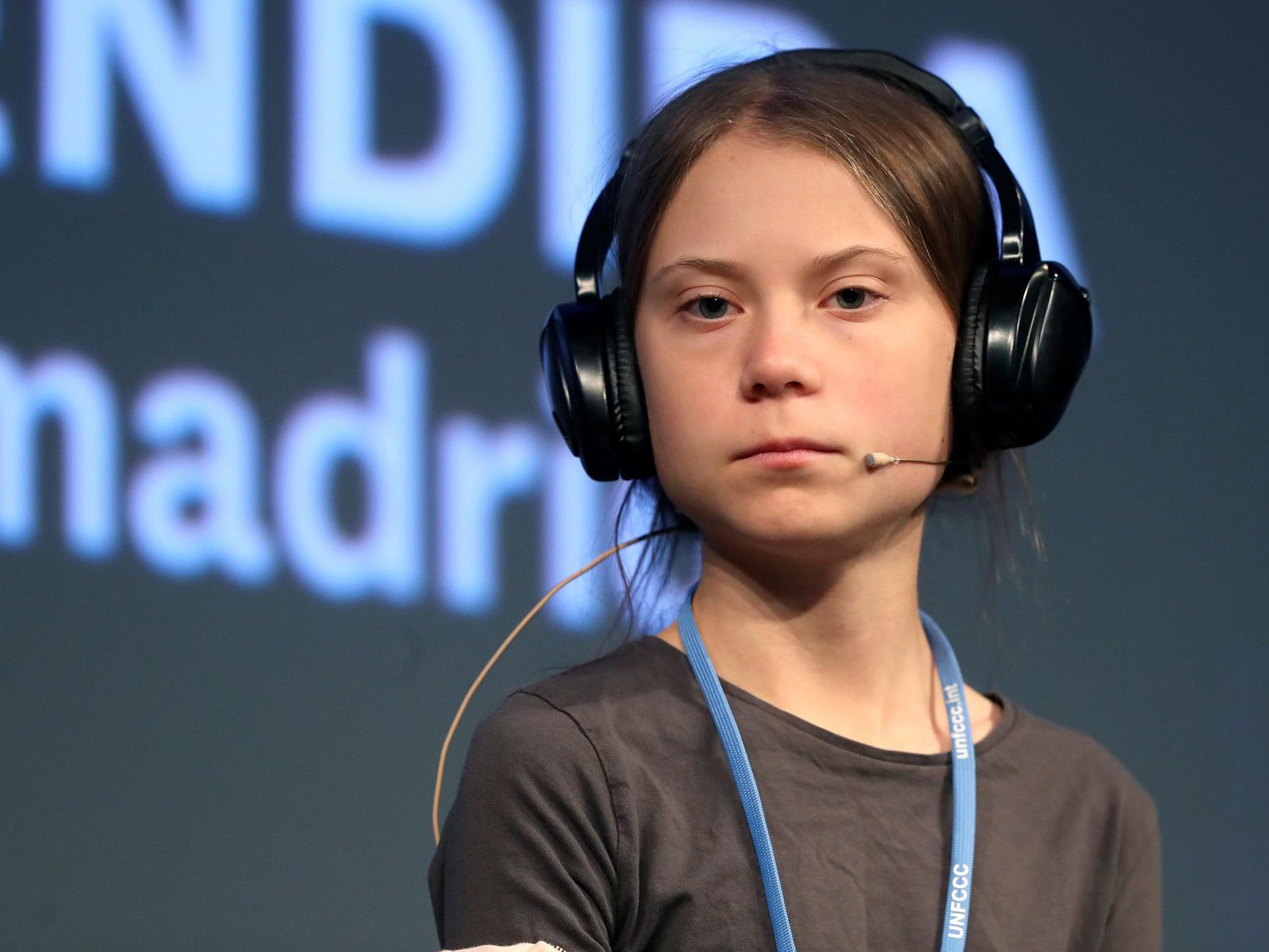‘We have achieved nothing’: Greta Thunberg urges ‘concrete action’ during Madrid climate conference
'Of course there is no victory, because the only thing we want to see is real action'

Your support helps us to tell the story
From reproductive rights to climate change to Big Tech, The Independent is on the ground when the story is developing. Whether it's investigating the financials of Elon Musk's pro-Trump PAC or producing our latest documentary, 'The A Word', which shines a light on the American women fighting for reproductive rights, we know how important it is to parse out the facts from the messaging.
At such a critical moment in US history, we need reporters on the ground. Your donation allows us to keep sending journalists to speak to both sides of the story.
The Independent is trusted by Americans across the entire political spectrum. And unlike many other quality news outlets, we choose not to lock Americans out of our reporting and analysis with paywalls. We believe quality journalism should be available to everyone, paid for by those who can afford it.
Your support makes all the difference.Swedish teenager Greta Thunberg has urged politicians to listen to the voices of young people during the second week of international climate negotiations.
The Swedish teenage activist was speaking as thousands of youth activists gathered in central Madrid on Friday to voice their anger about the slow pace of progress so far. The protest, organised by the climate strike movement Fridays for Future, was also attended by many students, families and professionals.
Just a few miles away, in the stuffy surroundings of Madrid’s largest conference centre, negotiators from across the world continued to try to hammer out the final details of the 2015 Paris Agreement.
Ms Thunberg made a surprise appearance at the conference on Friday to meet other young activists before being whisked away by security. She had hitch-hiked her way across the world after the talks were moved from Chile due to civil unrest.
Ms Thunberg later told reporters that the voices of climate strikers were being heard but not enough “concrete action” was taking place. "Of course there is no victory, because the only thing we want to see is real action,” she said. “So we have achieved a lot, but if you look at it from a certain point of view we have achieved nothing."
Hers was not the only young presence trying to push for more ambitious outcomes in Madrid. Speaking at a panel run by the Association of Small Island States, Samoan student Brianna Fruean from 350 Samoa and the Pacific Climate Warriors, said it was critical to remember that some nations represented at the talks were fighting for sheer survival. “World leaders need to know that people like me are watching them.”
The key sticking points of the talks, which began on Monday, are how to establish new international rules for carbon markets and how to help poorer countries pay for losses and damage caused by climate change.
A decision on carbon market rules is proving tricky because of disagreements about what to do with the surplus credits from earlier emission trading schemes and how to avoid ‘double counting’ emission cuts that are traded overseas.
Progress on loss and damage is also a long way off. Many vulnerable nations are pressing for a new financial mechanism to pay for major, one-off disasters such as hurricanes and typhoons, as well as longer term problems exacerbated by climate change.
But influential developed countries, particularly Australia, Japan and Switzerland (as well as the US, which is withdrawing from the Paris Agreement), do not want finance on the table at all because they think it will open the floodgates for future compensation claims.
Another sensitive subject under discussion is how to ensure human rights are respected in climate action. Russia in particular is resistant to the discussion of human rights in any context.
An underlying concern at the talks is the extent to which countries will be expected to be more ambitious when they revise their national carbon-cutting commitments next year.
A recent report by UN Environment Programme warned that there was a huge gap between what countries had committed to so far and the goal of keeping global warming to a reasonably safe level. It found global fossil fuel production needs to be more than halved by 2030 to stay within a 1.5c temperature rise, with coal the biggest offender.
Pressure to come to an agreement on these issues will rise next week as high-ranking national ministers arrive in Madrid. Whatever they decide will determine the path ahead to the next talks, which will be hosted by the UK in Glasgow next November.
Subscribe to Independent Premium to bookmark this article
Want to bookmark your favourite articles and stories to read or reference later? Start your Independent Premium subscription today.
Join our commenting forum
Join thought-provoking conversations, follow other Independent readers and see their replies
Comments